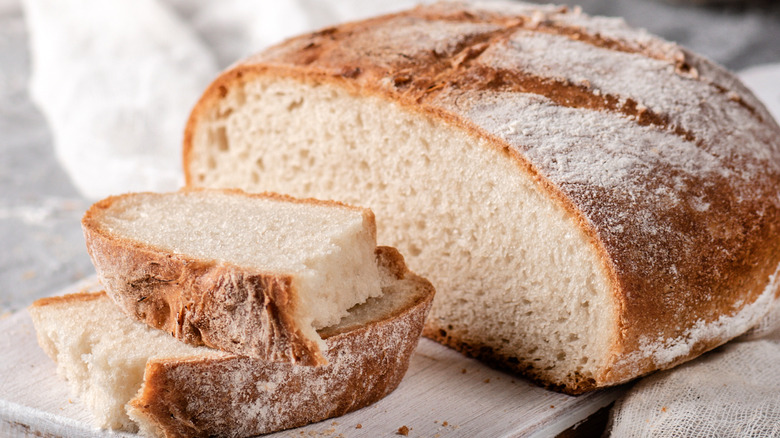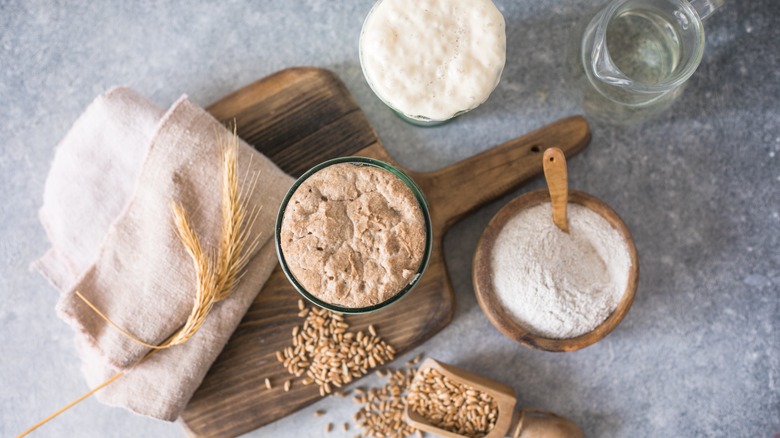How Some Bakeries 'Cheat' When Making Sourdough Bread
Nowadays there are so many different kinds of bread, your vision can go fuzzy just walking through the bakery section at your local supermarket. Every shape and in all different sizes, breads are a remarkably diverse culinary group. But there are a few that stand out among the crowd. With its sturdy crust, ever so slightly chewy bread, and a sharpness that no other bread can match, sourdough is a favorite of sandwich makers, soup dippers, and all people alike.
According to Masterclass, 'sourdough' is actually quite a broad classification. Plainly, sourdough is just any bread that is made with a living culture of natural, wild yeast. That's it. By this classification, there are actually lots of breads that are technically sourdoughs but lack that classic tang. The signature sour taste comes from the acids and bacteria that are produced by the dough as it is developed and allowed to rise.
Taking the sour shortcut
Making sourdough bread is also actually very simple, but it can be time-consuming. According to Consumer Reports, all you need is flour, salt, warm water, and a starter. You can use pretty much any kind of flour; the warm water will foster a climate that is conducive to the fermentation; the salt will help to strengthen the gluten, giving the bread its satisfying elasticity; and, finally, the starter — which is essentially just a fermented mixture of flour and water — will develop bacteria, which will produce the acids that give sourdough its signature snap.
But, shockingly, some bakeries choose not to do it this way. Instead, they opt to forgo the extended periods of time waiting for fermentation to occur by adding vinegar (or some other acid) to the mixture. They then hasten the process with yeast to leaven the bread, rather than using a typical sourdough starter. Because this shortened process lacks the time and the starter (as well as the simplistic artistry) of the traditional formula for sourdough, some consider this the "cheat" method for making sourdough. But, aside from connoisseurs, who really cares? What matters is how these loaves taste, and you won't know which is better until you try them each.

